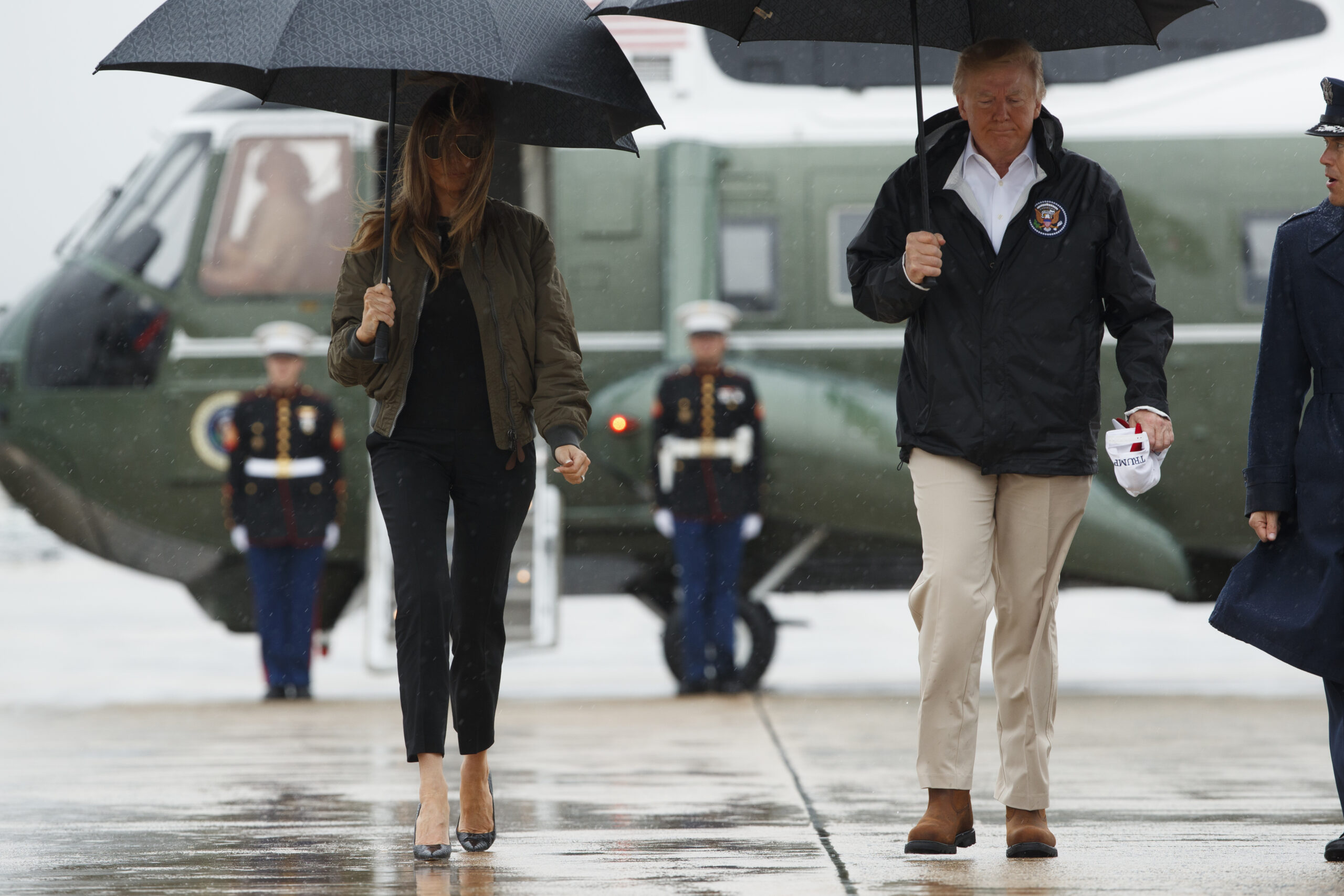Last week, President Donald Trump announced he would donate $1 million of his own funds to Hurricane Harvey relief efforts. White House Press Secretary Sarah Huckabee Sanders seemed to slow-walk that promise on Friday when asked where the funds would come from.
“He has not finalized where all of that will go,” Sanders said at the time. “I was actually going to use that as a perfect segue to remind everybody if you have suggestions, he is very open to hearing those. We’ve got a couple, but please send more if you have them.”
Sanders still hasn't found out if Trump's $1MIL donation to Harvey victims will be a personal donation or come from his foundation (via CBS) pic.twitter.com/gNbnDxMTho
— Kyle Griffin (@kylegriffin1) September 1, 2017
Journalist David Fahrenthold, who won a Pulitzer Prize last year for his investigations into Trump’s philanthropy, reminded his followers that it’s unlikely the Donald J. Trump Foundation, which the president chairs, would make the donation while still under the scrutiny of the office of Eric Schneiderman, the New York Attorney General.
It's my understanding that @realdonaldtrump's Fdn can't make donations now, while it's under investigation by NY AG. https://t.co/h4ssLReF2D
— David Fahrenthold (@Fahrenthold) September 2, 2017
The Donald J. Trump Foundation has been the source of controversy and scrutiny amid reports that Trump spent $258,000 from his charitable foundation to settle lawsuits that involved his for-profit businesses, according to an investigation by The Washington Post. Trump’s misappropriation of the Donald J. Trump Foundation’s funds may have also violated laws against “self-dealing” that prohibit the leaders of nonprofits from using charity money to benefit themselves or their businesses. The Donald J. Trump Foundation is funded almost entirely by outside contributions. The foundation also made headlines after reports indicated Trump met with Florida Attorney General Pam Bondi and cut her a $25,000 check that the Donald J. Trump Foundation sent to Bondi’s political fundraising committee in 2013. The donation, critics suggested, looked like an attempt to sway Bondi’s office not to take legal action against the now-defunct Trump University.
But did anyone really believe Trump’s promise to donate to the relief efforts, anyway? It doesn’t seem so. According to Tony Schwartz, the journalist and professional speaker who ghost-wrote Trump’s 1987 book, The Art of the Deal, victims of Hurricane Harvey’s destruction are in for a rude awakening. “He only promises to give,” Schwartz wrote in a tweet Friday morning. “Never actually does.”
Users on social media also questioned the veracity of Trump’s promise; some noted that Trump had promised to donate a $5 million to charity in exchange for hard evidence that proved President Barack Obama had been born in the United States. (Two years later, Trump, in a speech at the National Press Club, claimed to have upped the reward to $50 million. Trump insisted his actual offer “wasn’t reported by the press.”)
Is this the very same #POTUS who as Citizen Trump offered $4mil to find Obama's birth certificate? He's all heart ! pic.twitter.com/1dcgEbKDW5
— norah dooley (@Norah_Dooley) September 2, 2017
Trump doesn't have $1M to give from his personal account. It has to come from a foundation where he's collected $$ from others.
— Dene Grigar (@dgrigar) September 2, 2017
Donations that Trump reportedly has made also have the naughty habit of disappearing. In July 2016, New Jersey Governor Chris Christie said that his wife, Mary Pat Christie, received money from Trump in 2012, for a relief fund she ran after Hurricane Sandy battered the state. The Associated Press could not find a record of Trump’s donation, and when asked about, Christie claimed he had misspoken when asked about Trump’s donation.
Additionally, the Eric Trump Foundation has been under investigation since June, when a Forbes report revealed Donald Trump began charging for the use of Trump Organization golf courses, ultimately funneling the money into other charities which benefited his business interests, once his son Eric’s charity golf tournament started raising a substantial amount of money for St. Jude Children’s Research Hospital, which specializes in pediatric cancer. Money meant for St. Jude’s — more than $500,000 — was rerouted to other charities run by Trump associates after the elder Trump installed his own people on the foundation’s board.
The president’s history of charity is sketchy at best, and, given his purported wealth, a signal that the pledge is likely a pledge in name only, strictly for publicity purposes. The fact that people are questioning whether the President of the United States will actually make good on his promise says everything.

